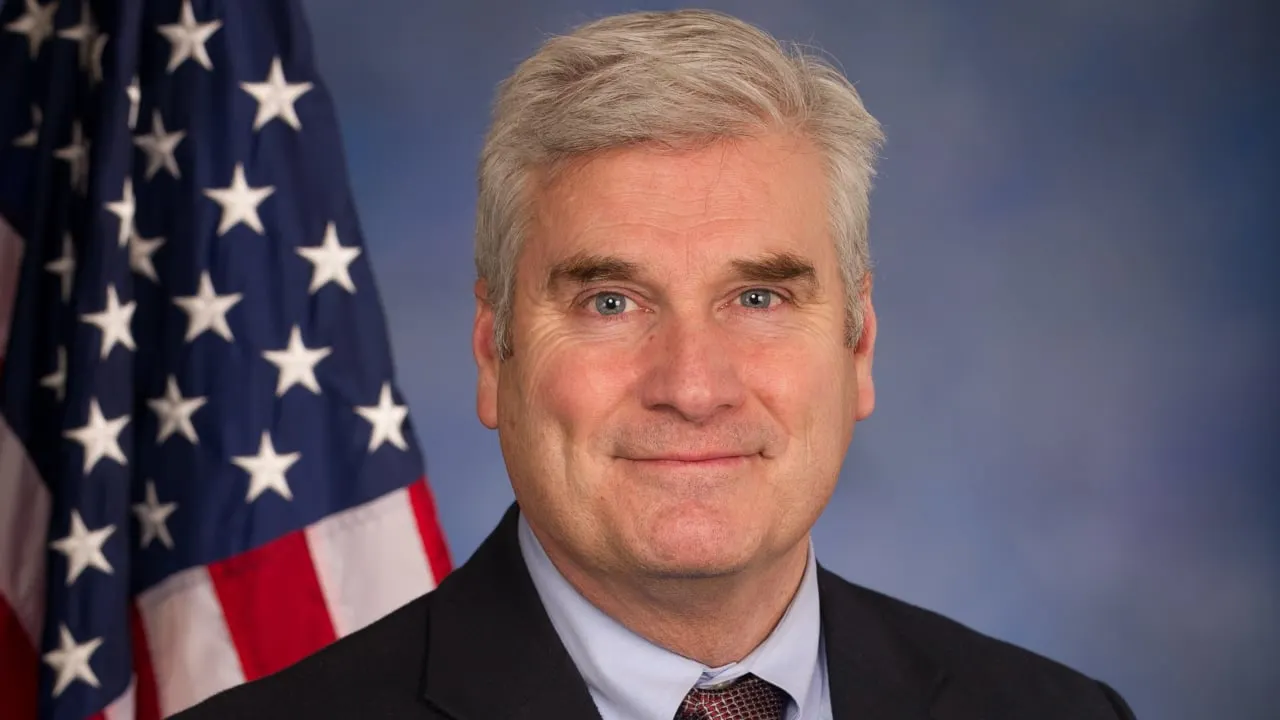The U.S. House passed legislation on Thursday to stop the Federal Reserve from issuing a Central Bank Digital Currency (CBDC) without Congressional approval.
The final vote tally for Rep. Tom Emmer’s CBDC Anti-Surveillance State Act was 216 ‘yea’ to 192 ‘nay,’ including support from 213 Republicans and three Democrats. This follows the bill’s passage through the House Financial Services Committee (HFSC) last year, which received zero support from Democrats at the time.
Emmer celebrated the bill's passage, tweeting that it “prevents unelected bureaucrats from issuing a financial surveillance tool to fundamentally undermine our American values.”
For more than two years, we have worked to educate, grow support, and pass this important legislation, which prevents unelected bureaucrats from issuing a financial surveillance tool to fundamentally undermine our American values.
— Tom Emmer (@GOPMajorityWhip) May 23, 2024
“My legislation ensures that the United States' digital currency policy remains in the hands of the American people so that any development of digital money reflects our values of privacy, individual sovereignty, and free market competitiveness,” he continued. “This is what the future global digital economy needs.”
The bill marks the third solely crypto-focused legislation taken up by the House this month, after the passage of a pro-crypto banking resolution and the Financial Innovation and Technology for the 21st Century Act (FIT21), which drew support from 21 and 71 Democrats, respectively.
Both bills—largely backed by Republicans—aligned in their goals to make operating crypto businesses in the United States easier, loosening the reigns held by the largely hostile Securities and Exchange Commission (SEC).
Emmer’s bill took a different tack from the FIT21 legislation, aiming to prevent the government and central bank from leveraging crypto for nefarious ends in the form of a CBDC. Unlike private market, decentralized cryptocurrencies such as Bitcoin and Ether, CBDCs would be issued and controlled directly by a government bank, with value directly linked to the nation’s fiat currency.
“It is government-controlled programmable money that—if not designed to emulate cash—will give the federal government the ability to surveil and restrict American’s transactions and monitor every aspect of their daily lives,” argued Emmer while defending the legislation on Wednesday.
Emmer’s cases against CBDCs reflect those of Republicans like Senator Ted Cruz (R-TX), Florida Governor Ron DeSantis, as well as high-profile left-leaning politicians including ex-Democrat Tulsi Gabbard and presidential candidate Robert F. Kennedy Jr. One of the bill’s backers, Rep. French Hill (R-AR), promoted private market stablecoins as a better alternative to CBDCs.
By contrast, many Democrats were more optimistic about the potential benefits of a U.S. CBDC, such as expanding global dollar dominance and helping lead other nations in terms of how to design their own CBDCs. If not, they argued, a Chinese CBDC could take hold.
“This is especially problematic given the Chinese CBDC has government surveillance baked in, while a United States CBDC would be designed to protect consumer privacy and other deeply held American values,” said HFSC ranking member Maxine Waters (D-CA) in opposition to the bill.
Edited by Ryan Ozawa.

